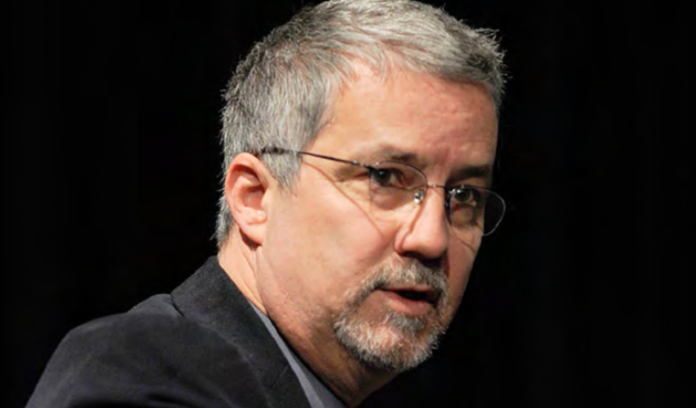
Interview mit einem der besten: dem Augenarzt Prof. Francis Munier aus Lausanne. Von ihm wollten wir wissen: Was sind die wichtigsten Fragen, die wir bei der Diagnose RB beachten müssen? Was sagt er den Eltern? Und wie geht es Langzeitüberlebenden?
KAKS: What is for you the most rewarding moment, why is it special to treat RB children?
Prof. Munier: To treat retinoblastoma children is to accept to work in a challenging high-pressure field where your decisions can affect not only patients’ sight but also patients’ survival. One of the most rewarding moments is to be able to save a reti- noblastoma patient from blindness and restore a useful vision (see the attached photo sent by the parents of their 4.5 years old child running for his first day at school after he recovered from bilateral group D retinoblastoma initially diagnosed blind at 1 year of age). To actively contribute to the development of new treatment modalities which can push the frontiers of conservative management or improve childrens’ quality of life, as well as to be involved in research projects aimed at deepening our knowledge of the disease, are also great sources of satisfaction.
KAKS: Any child you remember especially?
Prof. Munier: Of course, each child is unique, and it goes without saying that I cannot possibly forget any one of them. Nevertheless, clearly some patients’ stories are associated with stronger memories, especially those where new therapeutic strategies had to be found to salvage and restore vision of only remaining eyes. Several such stories come to mind, including some resulting in big victories, but also those where we unfortunately failed, despite all our efforts, to avoid enucleation. Surprisingly, those situations do not, however, necessarily represent the worst experiences as they can sometimes unexpectedly result in a role inversion where the families take on the task of comforting the defeated medical and nursing team. Over the years, my admiration for both childrens’ and parents’ resilience to overcome unhappy outcomes has remained intact. I want to believe that we helped them in that process by always providing them with the best possible medical care.
KAKS: What are the most important questions to ask at the time of diagnosis?
Prof. Munier: The diagnosis of eye cancer in a child usually comes like a thunderbolt out of the blue for the parents, eliciting thousands of questions. The most relevant ones now relate to 1) how will this diagnosis affect his/her life prognosis, 2) what can be said about the eye retention probability, and finally 3) can we predict the visual outcome. Put in this order, parents’ questions parallel doctors’ priorities taken into account when deciding the therapeutic strategy and provide a sort of check-list to make sure that parental and medical objectives are converging. This consensual ap- proach is a necessary condition for facing the long struggle from diagnosis to therapeutic success requiring iterative examinations and treatments under general anesthesia until 4 years of age. Another concern may be related to the impact on the quality of life, both short-term during the active phase of the treatments and long-term after completion of the therapy. Here again, parents and doctors should agree that preservation of a good quality of life is an important criterion when decisions are made aiming at minimizing sequellae and complications during their child’s care.
KAKS: What can you say about long term retinoblastoma survivors?
Prof. Munier: Earlier, the major burden for long-term retinoblastoma survivors was the development of treatment-related secondary malignancies, that were also jeopardizing the patient’s overall survival. By eradicating external beam radiotherapy and reducing the need for systemic chemotherapy, modern retinoblastoma management is now transforming the long term prognosis of retinoblastoma survivors, significantly reducing treatment-related morbidity and mortality and improving their quality of life towards a near-normal existence. Finally, the creation of specialized long-term retinoblastoma survivor clinics provides valuable follow-up options, including psychologic support, genetic counseling and general health guidelines that will assist the patients throughout their adult life.
KAKS: What would you like to say to these parents to comfort their worries in the first place?
Prof. Munier: First of all and fortunately in Europe, most affected children arrive in time before life is endangered. Furthermore, the recent advent of targeted treatments has greatly increased the probability of avoiding enucleation, even for cases with advanced disease and within a shorter time and with less adverse effects than before. I like also parents to know that nowadays, most of the treatments are given on an outpatient basis and allow the vast majority of children to keep not only a useful vision compatible with normal school attendance, but also normal cognitive capabilities despite numerous anesthesia.
07.12.2020 | News
